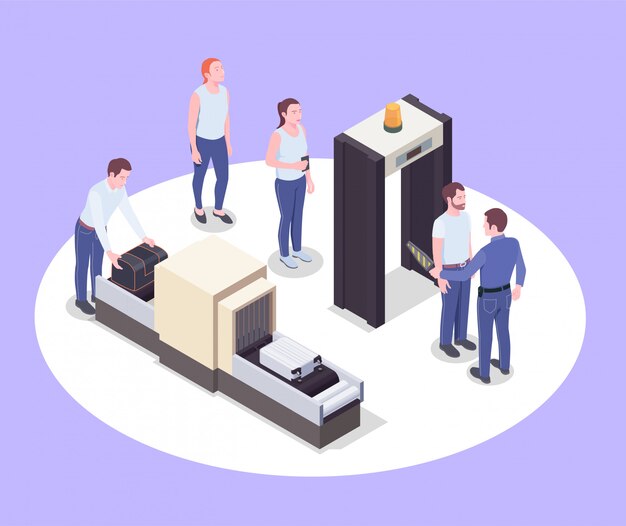
In today’s fast-paced world, businesses across various sectors are constantly looking for ways to enhance efficiency and improve customer satisfaction. One solution that has gained immense popularity is the Queue Management System. From hospitals and banks to government offices and retail outlets, queue management systems are transforming the way organizations handle customer service. In this blog, we will delve into the importance of queue management systems, their impact in Islamabad, and their broader role in Pakistan.
What is a Queue Management System?
A Queue Management System (QMS) is a technology-driven solution designed to manage and streamline customer flow in any service-oriented environment. By reducing waiting times, improving service efficiency, and enhancing the overall experience, QMS plays a pivotal role in modern business operations.
Features of a Queue Management System
- Ticketing System: Issues tokens or tickets to customers, ensuring fair and systematic service.
- Real-Time Monitoring: Tracks the number of customers and waiting times to optimize service.
- Data Analytics: Provides insights into customer flow patterns and service efficiency.
- Integration Capabilities: Can be integrated with other systems like CRM or appointment booking platforms.
Benefits of a Queue Management System
- Reduced Wait Times: Minimizes customer frustration by offering organized service.
- Enhanced Productivity: Employees can focus on delivering quality service rather than managing crowds.
- Data-Driven Insights: Helps in better decision-making by analyzing customer behavior.
- Customer Satisfaction: Creates a seamless and pleasant experience for clients.
Queue Management System in Islamabad
Islamabad, being the capital city of Pakistan, is home to a wide array of public and private sector organizations. The adoption of Queue Management Systems in Islamabad has seen significant growth, particularly in industries where customer service is paramount.
Industries Benefiting from QMS in Islamabad
- Healthcare: Hospitals and clinics use QMS to manage patient registrations, reduce waiting times, and ensure an efficient flow of services.
- Banking: Banks in Islamabad have implemented QMS to handle large crowds, ensuring quicker and more organized transactions.
- Government Offices: From NADRA centers to passport offices, queue management systems have streamlined operations and improved public satisfaction.
- Retail and Malls: Retail outlets and malls use QMS to enhance the shopping experience and manage checkout lines effectively.
Why Islamabad is Leading the Way
- Technological Advancements: The city’s focus on innovation makes it a hub for adopting smart solutions like QMS.
- Customer-Centric Approach: Businesses in Islamabad prioritize customer experience, making QMS a critical tool.
- Urban Growth: The increasing population and urbanization have driven the need for organized service management.
Queue Management System in Pakistan
Across the country, Queue Management Systems in Pakistan are revolutionizing how businesses operate. From small towns to metropolitan cities, organizations are recognizing the importance of efficient queue management in fostering customer loyalty.
National Impact of Queue Management Systems
- Improved Public Services: Government departments nationwide are implementing QMS to serve citizens better.
- Economic Growth: By improving business efficiency, QMS contributes to the overall economic progress of Pakistan.
- Digital Transformation: The integration of QMS with digital platforms supports the broader goals of a digitally-enabled Pakistan.
Challenges and Opportunities
-
Challenges:
- Limited awareness among small businesses.
- High initial investment for advanced systems.
-
Opportunities:
- Expanding QMS adoption in rural areas.
- Leveraging mobile apps for remote queue management.
The Future of Queue Management System in Pakistan
The future of Queue Management Systems in Pakistan looks promising as more industries adopt this technology to improve operations and customer satisfaction. With advancements in artificial intelligence and IoT, the capabilities of QMS are expected to grow, offering even more personalized and efficient solutions.
FAQs
1. What is a Queue Management System?
A Queue Management System is a technology that organizes and manages customer flow to improve service efficiency and reduce waiting times.
2. How does a Queue Management System work?
It typically uses ticketing systems, real-time monitoring, and data analytics to optimize customer service.
3. Which industries in Pakistan use QMS?
Industries such as healthcare, banking, retail, and government services extensively use QMS to enhance operations.
4. Why is QMS important in Islamabad?
Islamabad’s growing population and emphasis on customer-centric services make QMS essential for managing operations efficiently.
5. What is the cost of implementing a QMS in Pakistan?
The cost varies depending on the system’s complexity and features but is considered a worthwhile investment for most businesses.



Leave a Reply